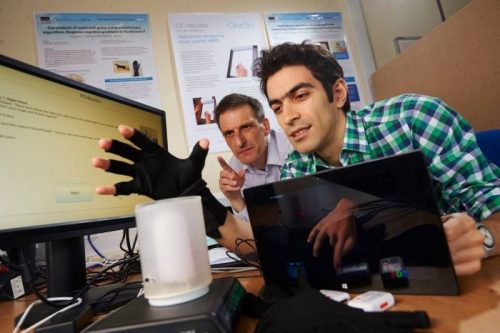Medical device developed to diagnose early stage dementia

York University spin-out ClearSky Medical Diagnostics has developed a medical device that can objectively diagnose mild cognitive impairment (MCI), a condition often suggested as an early stage of dementia.
It is estimated that between five and 20% of people aged over 65 have MCI, characterised by minor problems with cognition, such as memory or thinking.
ClearSky MD specialises in developing non-invasive medical devices for the diagnosis and monitoring of neurodegenerative conditions, including Parkinson’s and Alzheimer’s.
Its prototype diagnostic device – MCI-Monitor – is worn by a patient while undertaking a standard clinical test known as ‘the reach and grasp task’. The kinematic characteristics of reach-to-grasp actions and the visual attention while performing the task are captured by the device and measured using AI-powered technology.
Software based on biologically inspired computer algorithms then provides an immediate result.
ClearSky’s initial studies have suggested that MCI-Monitor is able to differentiate between Parkinson’s with normal cognition, PD-MCI (Parkinson’s disease MCI) and PDD (Parkinson’s disease dementia).
“We are excited about the potential of MCI-Monitor to replace time-consuming and subjective conventional clinical tests to assist health care providers in making a diagnosis early, easily and accurately,” said Professor Stephen Smith, founder of ClearSky MD.
“We’ve already applied our specialised ‘white-box’ machine learning algorithms across a number of devices to help diagnose and monitor neurodegenerative conditions, such as Parkinson’s and Alzheimer’s, and would love support to accelerate the development and testing of MCI-Monitor.”
The company, which already has launched two CE-marked diagnostic and monitoring devices is now seeking partners to collaborate on the development and launch of MCI-Monitor to the general population.








